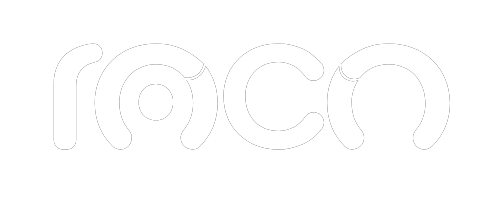Today, having a digital presence is no longer a competitive advantage, but a necessity. And the first step to achieving this is having a well-structured website. But do you know which elements of a website are truly important for attracting customers, building trust, and positioning yourself online?
In this guide, we explain what a website consists of, what elements it shouldn't be missing, and how to structure it to achieve an effective, professional experience aligned with your business objectives.
Why is a Website Important?
The internet is a 24/7 active space. Millions of users constantly use it to search for information, products, and services. Most purchasing decisions begin with a Google search, and if your company doesn't have a digital presence, you simply don't exist for that potential customer.
A business website allows you to appear in search engines, show who you are, what you offer, and how they can find you. It's your digital cover letter, a direct communication channel with your customers, and a sales tool available 24/7.
But for it to really work, your website needs to have certain key elements.
What Should a Business Website Include?
The elements required to create a website go beyond visual design. They involve functionality, structure, user experience, and strategic content. Here, we share the six basic elements of a website and its essential components so it works properly and adds real value to your business.
1. Responsive Design
One of the first elements of a modern website is that it is responsive, meaning that it displays correctly on any device: cell phones, tablets, laptops, or large screens.
More than 601% of web traffic comes from mobile devices, so if your website doesn't adapt well to small screens, you'll lose visitors and potential sales. A responsive design improves the user experience and boosts your Google rankings.
2. Clear Organization and Intuitive Navigation
The organization of information on your website is key. A good structure allows visitors to easily find what they're looking for, whether you have a single-page or multi-page website.
An intuitive menu, clear visual hierarchy, and well-identified sections facilitate navigation and increase user retention. Remember: a good website guides visitors naturally toward the desired action (contact, purchase, subscribe, etc.).
3. SEO strategy
It's not enough to have a beautiful website; you need to be found. SEO (Search Engine Optimization) is one of the key elements of a modern website. This strategy allows your site to appear at the top of Google's results when someone searches for your products or services.
To achieve this, techniques such as the use of keywords, title structure (H1, H2), loading speed, image optimization, and valuable content are applied.
Want to learn more? Read our blog: Why isn't my website getting customers? Learn about SEO
4. Interaction Elements
Calls to action (CTA) buttons, contact forms, WhatsApp links, or maps to your physical store are essential interactive elements. They should be strategically placed to facilitate user communication and encourage conversion.
These elements ensure that your page not only informs, but also connects and motivates the visitor to take the next step.
5. Attractive and Coherent Visual Design
Design isn't just about aesthetics, it's about brand identity. A good website should reflect your essence as a company through a consistent color palette, legible typography, a well-placed logo, and a visual style that connects with your target audience.
For example, if you sell children's products, the design should be cheerful, friendly, and colorful. Visual unity generates trust and professionalism.
6. Value Content
One of the most powerful elements of a Web page It's the content. Publishing blogs, tips, success stories, or how-to guides not only informs, but also positions your brand as an expert and improves your search engine rankings.
Valuable content is also key to building loyalty, generating repeat traffic, and increasing conversion rates.
Characteristics of a Good Website
In addition to the elements mentioned above, an effective website must meet these characteristics:
- Fast charging speed
- Security (https)
- Accessibility
- Support for modern browsers
- Integration with social networks and analytics tools
What Do I Need to Create an Effective Website?
If you're wondering what it takes to create a website that really works, the answer lies in combining strategy, design, technology, and content.
Well-crafted web page elements can help you:
- Attract more potential customers
- Improve your online positioning
- Sell more and build loyalty
- Building trust and reputation
- Save on traditional advertising costs
At Agencia Roco We help you create functional, visually appealing, and optimized websites from scratch. Learn about our web services and start building your impactful digital presence today.



